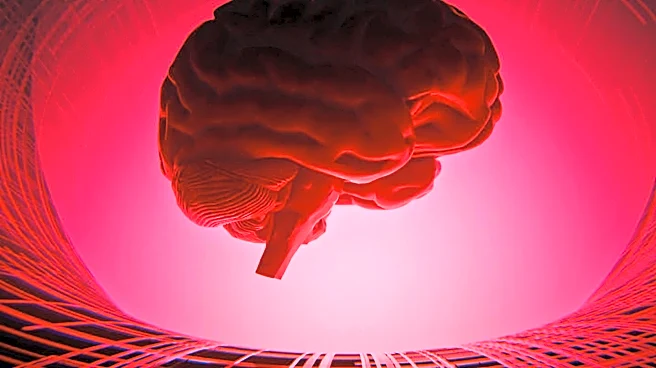What's Happening?
Researchers from Columbia University and McGill University have discovered that high levels of the stress-related protein SGK1 are associated with depression in individuals who experienced early-life adversity.
This finding suggests that SGK1 could be a target for new antidepressant treatments, particularly for those whose depression stems from childhood trauma. The study highlights that current antidepressants are often less effective for these individuals, and SGK1 inhibitors, already in development for other conditions, could offer a new therapeutic avenue. The research also indicates that genetic variants increasing SGK1 production correlate with higher depression rates in teenagers exposed to early adversity.
Why It's Important?
This discovery is significant as it opens the possibility of developing more effective treatments for depression, particularly for those with a history of childhood trauma. By targeting SGK1, new medications could potentially address the unique biological processes that contribute to depression in these individuals, offering hope for improved mental health outcomes. The research also underscores the importance of early intervention and the potential for genetic screening to identify those at greatest risk, which could lead to more personalized and effective treatment strategies.
What's Next?
The researchers plan to explore clinical trials for SGK1 inhibitors in individuals with depression linked to early-life adversity. This could lead to the development of targeted therapies that address the specific needs of this population. Additionally, genetic screening may become a tool for identifying individuals who would benefit most from these new treatments, potentially transforming the approach to managing depression in those affected by childhood trauma.











